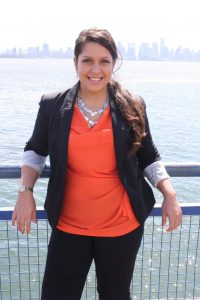
Sara Eftekhar
Sara Eftekhar is currently a Labour and Delivery Nurse at B.C Women’s Hospital and a research nurse with the UBC examining the effectiveness of a Health Promotion Intervention for women who have experienced intimate partner violence. She is also a Women Deliver Leader and youth leader with the City of West Vancouver. For the past few months, she has been working with the Youth Secretariat and holding round table discussions with youth to create Canada’s first ever youth policies. Sara’s past experiences include working internationally as a nurse with refugee women in Egypt, creating health education programs for women in Tanzania and consulting the UNAC and Minister of Defence on how Canadian youth can be involved in peacekeeping and peacebuilding. She is the co-founder of a community based organization in rural Kenya which helps provide scholarships to teen mothers. She has been an outspoken advocate for women’s health and youth rights at the United Nations representing Canada, the World Youth Congress and several media outlets. She has been awarded the YMCA Youth Woman of Distinction Award, RBC’s Top 25 Immigrants of Canada Award and the Queen Elizabeth Diamond Jubilee Medal. She holds BScN in Nursing from UBC and MA in Peace, Conflict and Development from Bradford University as a Rotary Peace Scholar where she examined the impact of conflict on women’s reproductive health.
Tell us a little about yourself and about an element of your work that relates to gender equality?
As a labour and delivery nurse at BC Women’s Hospital, every day I support and empower women through their labour journey. I am also working on a research project with UBC faculty of Nursing examining nursing interventions for women who are survivors of intimate partner violence.
My experiences with local youth and women has made me a Women Deliver Youth Delegate. I am part of a network of 700 youth advocates from more than 138 countries who are advancing gender equality and the health, rights, and wellbeing of girls and women. The most exciting part of this is that next year, The Women Deliver Conference; the biggest gender equality conference around the world will be hosted in Vancouver.
What motivated you to take action?
Both my personal and professional life have motivated me to take action and be outspoken on issues that I am passionate about. My family immigrated to Canada from Iran when I was eight years old. They lived through a revolution and war and my mom grew up in a country where her potential was not realized. Society controlled every aspect of her life from the way she dressed to what she could study in university. Her lack of rights and freedom motivated her to leave the country but raise me as a feminist and encourage me to not only take advantage of opportunities in society but to stand up against injustice and fight for equality and justice for all like they had done in Iran.
Then, working as a nurse at BC Women’s Hospital, I have witnessed injustice and inequality through my patients. Witnessing lack of mental health supports, little to no housing options for single mothers, the involvement of Ministry of Children and Family Development BC (MCFD) in many new mother’s lives, has allowed me to realize the challenges we face in our society. My patients’ experiences, especially working at BC Women’s Hospital, reflect a deeper narrative of how we treat the most vulnerable, and how gender inequality persists in our society. My patient’s stories have also motivated me to take action and advocate for women on a population level.
What is a current challenge in the realm of gender equality that you are thinking about and how would you like to engage with others on it?
Although we have come a long way in Canada, we still face certain challenges with gender equality. I think of these challenges as layers and the layers of challenges increase when we talk about women of color, single mothers, Indigenous women, Queer Women, Trans women and women with disabilities. For example, poverty, violence and mental health affect these women more tremendously. In my opinion, immediate needs for women in Canada are a national birth control plan, a comprehensive child care policy, more affordable housing and better support services for mental health. As well, we need a more comprehensive sexual health education program to include a healthy relationship component to decrease the incidences of intimate partner violence, which impacts 1 in 3 Canadian women.
What do you think the role of an academic institution, such as UBC, could/should be in gender equality advocacy?
Every place and person has a role to play in advancing gender equality. I believe academic institutions like UBC can support women by supporting organizations like SASC, providing more scholarships and grants to marginalized women, reducing child care costs on campus, providing spaces for women’s group to gather and support one another and providing courses about gender equality and feminism at little to no cost for the general public.
 Faculty of Art
Faculty of Art